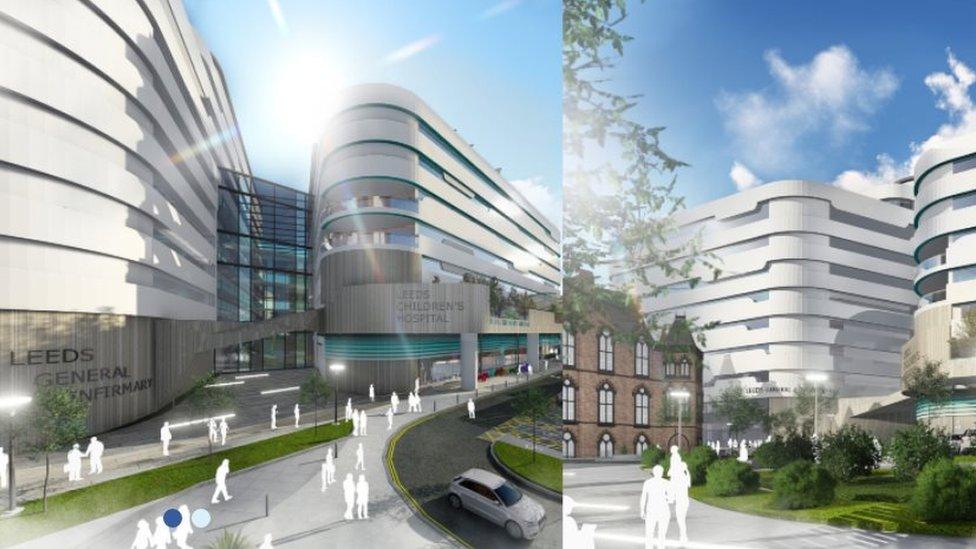Concrete crisis hospitals 'horrifying' says committee of MPs
- Published
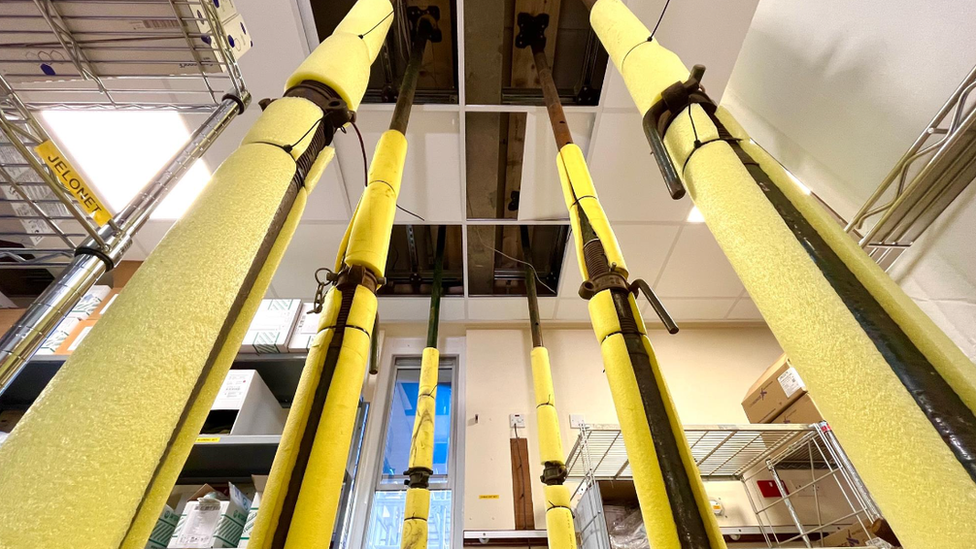
Hinchingbrooke Hospital, in Huntingdon, Cambridgeshire, was visited by the committee
A senior MP said she and colleagues were "horrified" when they visited hospitals fitted with unsafe concrete.
A committee has said it has no confidence the government will build 40 new hospitals by 2030, external as promised.
Its report concluded some hospitals may need to close while work is finished to remedy issues with the concrete.
Committee chairwoman Dame Meg Hillier said one hospital could not admit bariatric patients to upper floors because of the structural weaknesses.
Earlier this year, hundreds of schools and hospitals across England were identified as being fitted with Raac (reinforced autoclaved aerated concrete).
"We were pretty horrified seeing in reality what Raac is like," said Labour MP Meg Hillier, speaking to the BBC.
"When we went to visit Hinchingbrooke Hospital [in Cambridgeshire] it was extraordinary.
"That's only one part of the hospital that has got the Raac, but they couldn't admit patients to the upper floors unless they had proper permission from the property managers because the weight could be too great and they had to treat bariatric patients on the ground floor because the patients plus the weight of the equipment in one spot on the roof was incredible."
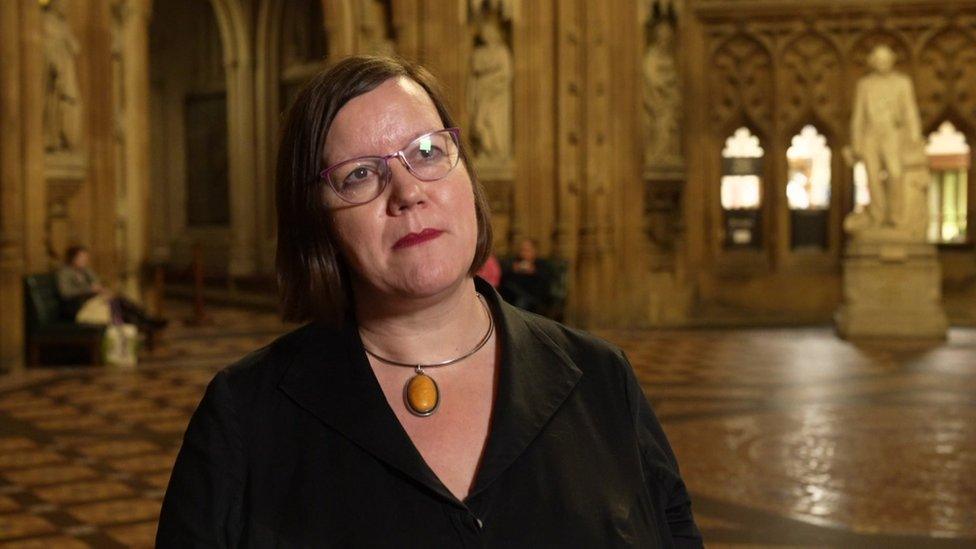
Dame Meg Hillier, chairwoman of the Public Accounts Committee, said there was no confidence the government could deliver its hospital promises by 2030
The Public Accounts Committee of MPs (PAC) published its report after carrying out an inquiry, external into the New Hospital Programme (NHP).
Former Prime Minister Boris Johnson pledged to build the 40 hospitals as part of his 2019 Conservative election manifesto.
Seven hospitals on the list are fitted with Raac, the committee said, including Hinchingbrooke in Huntingdon, the James Paget Hospital in Great Yarmouth, Norfolk, Queen Elizabeth Hospital in King's Lynn, Norfolk, and West Suffolk Hospital in Bury St Edmunds, Suffolk.
All declined to comment on the report.
Ms Hillier said there were "challenges which are not good for patients or for staff" at both Hitchingbrooke and West Suffolk.
She said spending for hospital refit projects had been "raided" in favour of "day-to-day spending".
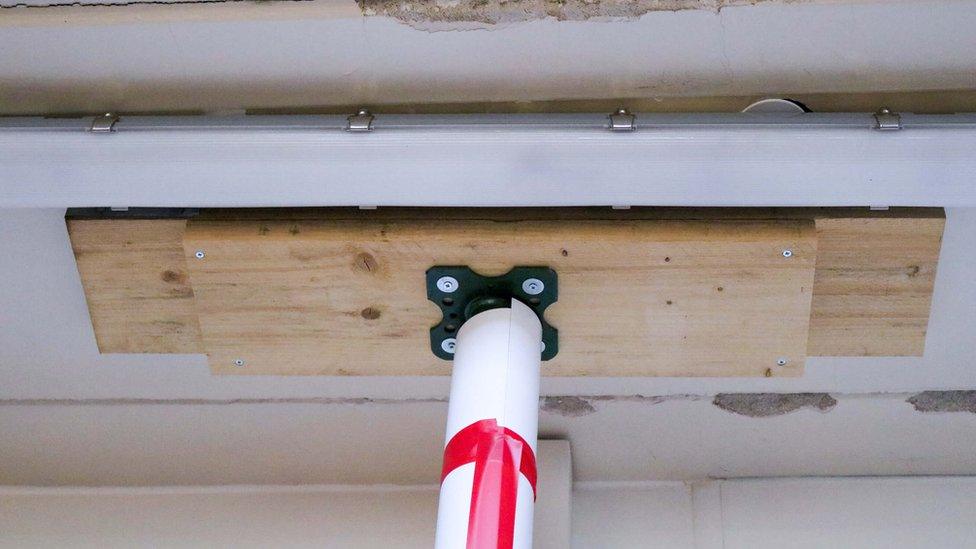
Thousands of props are supporting the ceilings at the Queen Elizabeth in King's Lynn
"There comes a point there might be a risk to patients where they actually need to close," added Ms Hillier.
"There's concrete crumbling and no matter how much you prop it up, it just does come to the end of its life."
The committee called for the Department of Health and Social Care (DHSC) to urgently examine how the NHP could deliver results for patients.
There appeared to be "insufficient funding" to build all the hospitals by 2030, the MPs said.
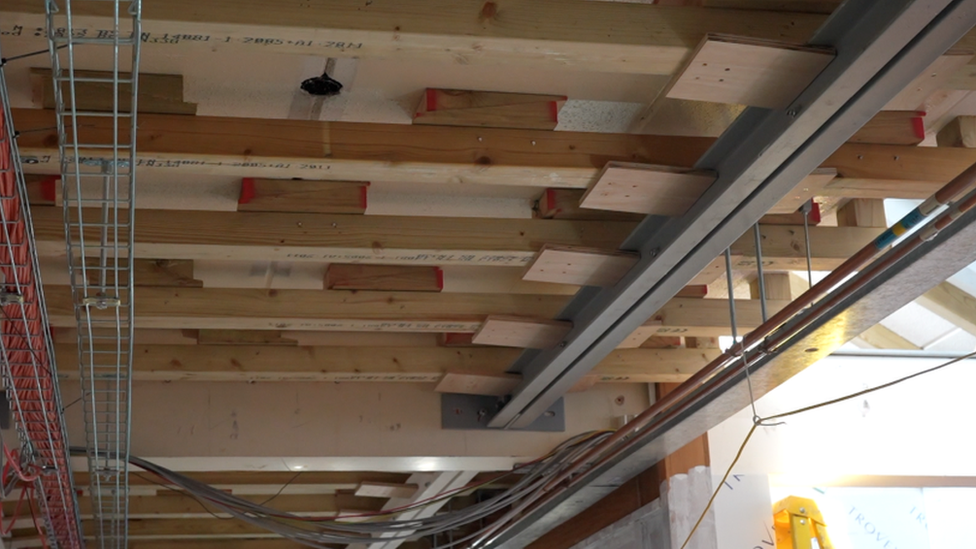
Roof supports are in place in many parts of West Suffolk Hospital
The director of policy and strategy at NHS Providers Miriam Deakin said: "First the government's own spending watchdog raised serious concerns about the progress of the NHP and now MPs have too."
A DHSC spokesperson said: "We are committed to delivering 40 new hospitals by 2030, expected to be backed by over £20bn of investment and additional clinical projects.
"Three hospitals open to patients, another two opening shortly, and a further 16 in construction or have early construction activity under way to prepare sites.
"Our innovative 'Hospital 2.0' approach will enable us to build high quality hospitals more quickly."

Follow East of England news on Facebook, external, Instagram, external and X, external. Got a story? Email eastofenglandnews@bbc.co.uk, external or WhatsApp 0800 169 1830.
Related topics
- Published20 October 2023

- Published17 July 2023
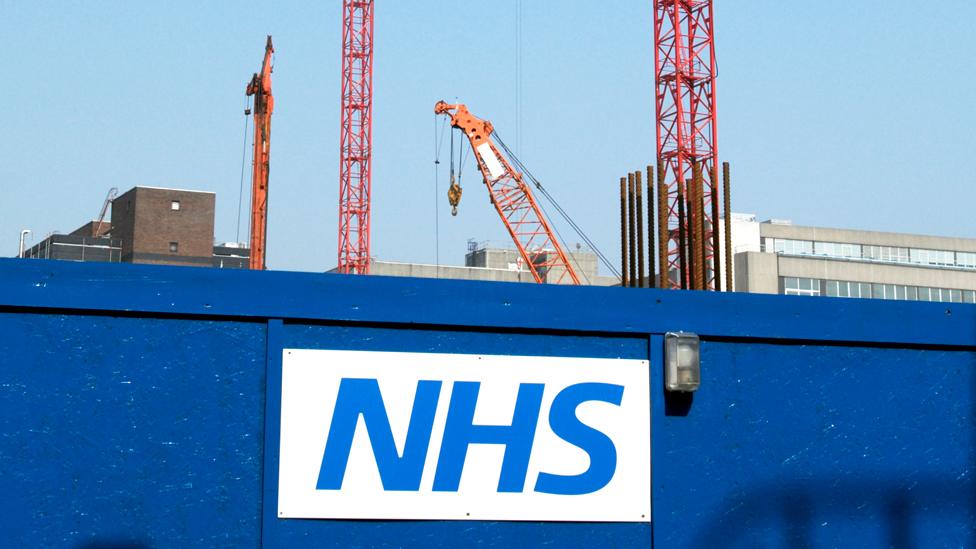
- Published17 May 2023

- Published7 December 2022
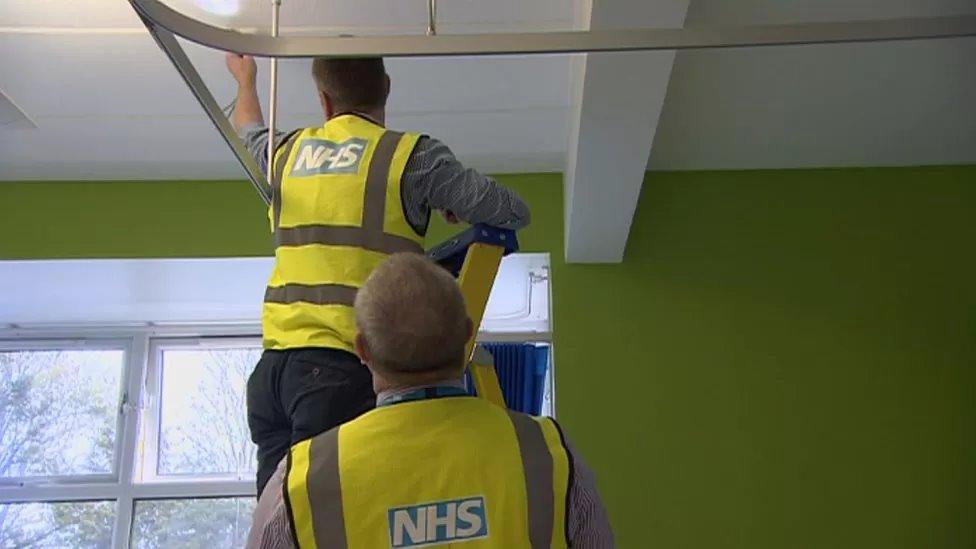
- Published4 July 2022
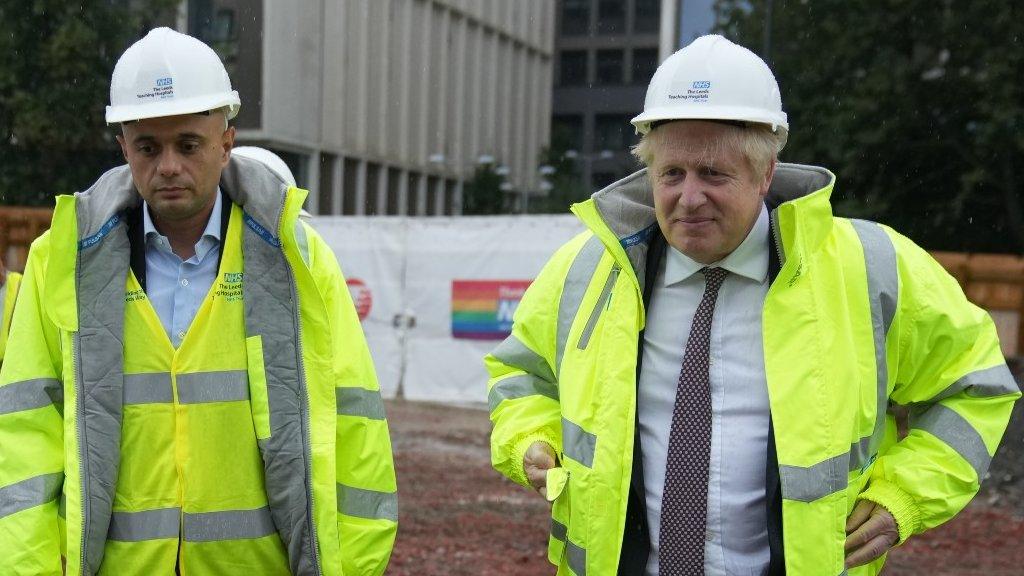
- Published4 December 2019
